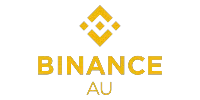Key takeaways
- Both KuCoin and Binance have very low trade fees.
- KuCoin is unregulated in Australia, meaning it doesn't need to abide by local laws.
- Neither platform allows AUD deposits or withdrawals.
Binance and KuCoin were launched in 2017 with their own exchange token and allow anyone, from beginners to professional traders, to buy, sell and trade over 300 cryptocurrencies in real time.
Both have grown in popularity thanks to their low fees and suite of trading features, like lending schemes to staking. Continue reading to find which exchange suits you best.
At a glance: KuCoin vs Binance
Compare KuCoin and Binance on features like staking, coins, fees and security.
Kucoin | Binance | |
|---|---|---|
| Location | Seychelles | Distributed |
| Supports fiat currencies? |
|
|
| Range of cryptocurrencies? | 1086 cryptocurrencies | 446 cryptocurrencies |
| Features |
|
|
| Trading fees | Low volume: 0.1% High volume: 0.025% | Standard trading fee: 0.15%-0.1% |
| Customer support | Online help centre, email, social media, chat, Telegram | Online help centre, email and social media, chat |
| User interface | Intermediate
| Intermediate
|
| Set-up for new users and advanced verification steps | New users must provide:
Advanced verification for larger BTC daily withdrawal:
| New users must provide:
Advanced verification for larger withdrawals and FIAT deposits:
|
| Supported countries | Global | Global (excluding the US) |
| Learn more |
Features
KuCoin
- P2P trading: Buy/sell crypto with others
- P2P loans: Loan crypto to earn yield
- DeFi products
- Staking: Earn yield with Soft, Flexible and Fixed staking via Pool-X
- Trading bot: Free bot to earn profits trading
Binance
- Derivatives: Futures, options and leverage
- P2P trading: Buy/sell crypto with others
- DeFi and CeFi: Earn yield, borrow and loan crypto and participate in DeFi
- Staking: Earn yield on your funds
- LaunchPad: Participate in initial coin offerings
- Stock tokens: Trade equity shares with crypto coins
Supported cryptocurrencies and fiat
KuCoin
- Supported fiat currencies: USD, EUR, GBP, RUB, CNY, KRW, JPY, TRY, VND
- Supported cryptocurrencies: Approximately 1086 cryptocurrencies
Binance
- Supported fiat currencies: AUD, EUR, GBP, USD, JPY, CAD, NZD, CHF, KWD, AED
- Supported cryptocurrencies: Approximately 446 cryptocurrencies
Trading Fees
KuCoin
Spot trading fees are based on a tiered fee schedule for Maker/Taker trades from 0-12, dependent upon monthly trading volume.
- Level 0 customers: 0.1%
- Through to high volume Level 12 customers: 0.025%
- With tiered discounts available with KCS coin: From 0.08%-0.02%
Binance
Fees vary and depend on the order type, but your typical spot order uses a Maker/Taker system with fees starting at 0.1% and drops if your trade volume hits certain levels.
- Standard trading fee: 0.10%-0.15%
- Discounts available with BNB coin: 0.075%
- Fees for products like futures, options and lending vary
Payment methods
KuCoin
- Cryptocurrency
- PayPal
- P2P
Binance
- Bank transfer
- Credit card
- Cryptocurrency
- Debit card
- PayID
Volume
The trading volume of an exchange is how many coins have been sold/bought over a set period. According to the data platform Coingecko, Binance is the largest of all exchanges by 24-hour trade volume.
At the time of writing, Binance's 24-hour trade volume stood at over $80 billion. In contrast, KuCoin sits within the top 10 exchanges at number 10 by trade volume, overseeing $4 billion of activity.
Security
Both Binance and KuCoin have a range of solid security measures to help you remain safe on their platforms. While both offer two-factor authentication (2FA), Binance allows you to restrict account use by device and KuCoin protects its customers by restricting logins from different IP addresses.
Binance also allows you to whitelist safe cryptocurrency withdrawal addresses to prevent accidental (inputting the wrong address) or unauthorised use of your account.
While each exchange is committed to storing the majority of its cryptocurrency in cold, offline storage rather than hot wallets, both Binance and KuCoin have insurance plans to guarantee funds in the event that something like a hack did take place.
For added security, KuCoin allows users to trade in a non-custodial manner without ever revealing their private keys by downloading and trading through the local Arwen client.
Regulation
Binance is regulated by Australia's AUSTRAC, however due to issues with its Australian payment provider, it no longer supports AUD withdrawals and deposits.
KuCoin is not regulated or registered with any Australian government organisation and also does not accept AUD deposits or withdrawals. Exchanges that aren't regulated in Australia do not necessarily need to abide by local laws and you may be less protected by law enforcement agencies.
Verdict: Should you use KuCoin or Binance?
KuCoin
KuCoin shares many of the same features as Binance, including low trading fees, a proprietary token, KCS, and a large selection of altcoins.
It has a set of unique features, including the KuCoin Trading Bot, which allows any investor no matter their trading experience to trade successfully; this is alongside its own staking platform, Pool-X, which enables you to earn yield by depositing crypto with soft, flexible and fixed staking options.
KuCoin may appeal to active traders searching for emerging altcoins or long-term crypto investors wishing to take advantage of KuCoin's unique staking options.
However, KuCoin doesn't support AUD deposits, trades or withdrawals. This means your only option is to make crypto to crypto or P2P transactions. This doesn't make it impossible to use, but it is a hassle.
KuCoin also remains unregulated by Australian authorities, which means there are additional risks, including less legal recourse if the exchange suddenly ceases operating or is hacked.
Binance
By quite a considerable margin when it comes to trade volume, Binance is the world's largest cryptocurrency exchange. It's clear to see how it carved out this position, with its wide range of services, comprehensive list of over 400 altcoins and some of the lowest fees on the market.
Like KuCoin, Binance has its own coin, BNB, and multiple ways for you to earn additional income, from staking to liquidity swapping.
Due to the sheer depth of its services, from traditional trading to mining pool setup, and the list of altcoins available, Binance deserves its top spot in the market and would be a perfect choice for any user wishing to put their crypto to work across a range of investment opportunities.
Unlike KuCoin, Binance is regulated under AUSTRAC, making it a safer choice for investors. And while Binance has low trading fees, like KuCoin, it does not support AUD deposits and withdrawals. This can lead to additional high fees when using third party services to top up your account (or withdraw).
What to consider before using KuCoin or Binance
KuCoin
What are the pros of using KuCoin?
- Trading is made easier with the KuCoin trade bot
- Strong customer support with a 24/7 ticket system
- Low, tiered pricing structure with discounts available for KuCoin holders
- Quick sign-up process with no ID required
- Arwen protocol option for added key security
- Feature-rich
What are the cons of using KuCoin?
- Not registered with any federal body
- No fiat withdrawals
- A smaller selection of altcoins
- Doesn't support AUD deposits or withdrawals
Binance
What are the pros of using Binance?
- Trusted due to its size and market share
- Buy and sell the widest range of digital currencies
- Advanced trading capabilities
- Competitive fees, with discounts available to Binance Coin holders
- Quick sign-up process with no ID required
- Feature-rich
- Registered with AUSTRAC
What are the cons of using Binance?
- Slower customer support with fewer contact methods
- Multiple services/coins unavailable in many areas of the US
- Anyone new to cryptocurrency exchange use may find the interface and depth of tools intimidating
- No AUD deposits or withdrawals
Frequently Asked Questions
Sources
Ask a question
More guides on Finder
-
Webull Pay Australia review
Webull Pay Australia allows Aussies to buy, sell and manage a wide selection of cryptocurrencies, integrated within the broader Webull ecosystem.
-
Bybit review
We reviewed Bybit, a global crypto exchange most known for its speciality in crypto derivatives.
-
Coinstash review
Coinstash gives you access to over 1000 cryptocurrencies by integrating with DeFi markets. Find out more in our review.
-
Swyftx review
Swyftx is one of Australia's most beginner-friendly exchanges, with an emphasis on user experience and customer satisfaction.
-
Gemini review
Read the Gemini cryptocurrency exchange review to walk through its features and see how it works.
-
Cointree review
Read our Cointree cryptocurrency exchange review to find out how it works and what you need to know before signing up.
-
Digital Surge review
Dive into Digital Surge’s array of uniquely Australian features and discover if the platform’s fees, trading options and interface are right for you.
-
Binance Australia review
In this deep-dive review we look at the trading and investment options available, and assess what type of cryptocurrency investor Binance is right for.
-
CoinJar review
Learn how to get some of the lowest fees in Australia with the CoinJar exchange.
-
CEX.IO review
Read the CEX.IO cryptocurrency exchange review to see how it works and how much it costs.